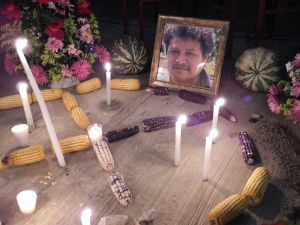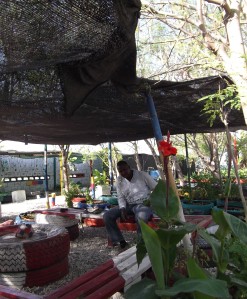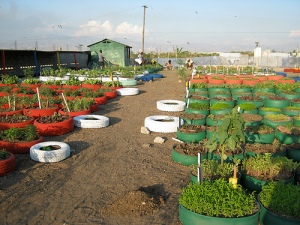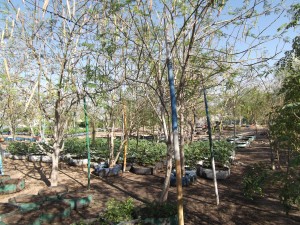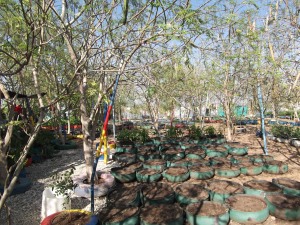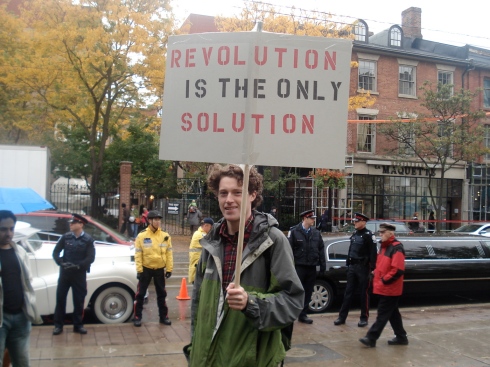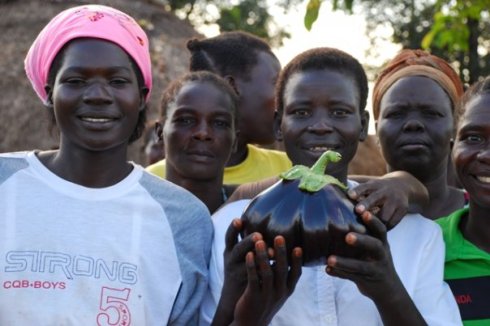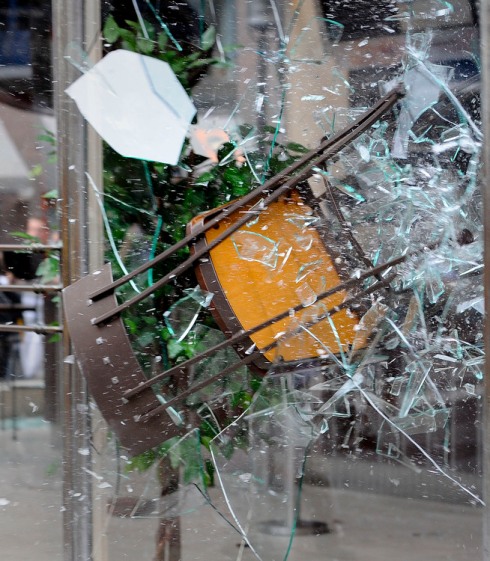For Silvia Nuñez of the national Autonomous University of Mexico’s Centre for North American Studies, it’s really not possible to say that Mexicans are actually changing their (generally) positive impression of Canadians simply because our mining companies are damaging their nation’s environment while sloughing off any responsibility for the abuse of the rights of those who are complaining about it.
But maybe they should be.
I mean, I do understand when Ms. Nuñez says that it “is a very focused sector that is tracking this issue” – NGOs concerned about human rights and the environment.
What’s more, the Mexican media already have a lot of other serious issues – from missing students to economic malaise to government corruption to drug cartel hyper-violence — to deal with.
But there seems to be something especially wrong when it are foreigners coming to your town and causing havoc, yet pretending to be good guys. And in Mexico, increasing numbers of people all over the country have been complaining and protesting about what happens when a Canadian mining company finds something valuable under their land.
Most of those protests have to do with water pollution, such as in Guerrero where the cyanide used by Vancouver-based Goldcorp in La Carrizalillo has caused major health problems, or in Zacatecas, where the same firm’s Peñasquito open pit mine grabbed most of the water supply, or in San Luis Potosi, where New Gold’s leach ponds at their Cerro de San Pedro mine overflowed into the community’s water source.
In other cases, such as in Veracruz, communities are simply concerned by potential disasters, such as that presented by Goldcorp and Timmins Gold blasting near a nuclear power station.
These protests tend to be given short shrift by local and Canadian authorities, and by the media. After all, these are mostly poor, mostly rural, often indigenous people who are doing the complaining. Shouldn’t they just be happy that some local investment is coming to their hardscrabble hick towns? Some actual development? Even the current Canadian government considers mining companies excellent promoters of development, to the point that it wants Canadian charities to work with them in the global struggle against poverty.
Indeed, one small town in Durango called La Sierrita did take that approach. When Toronto-based Excellon Resources showed up wanting to exploit the zinc, lead and silver in their area, they signed a contract that seemed to make the most of the situation. Along with paying some royalties, the company would provide a certain number of jobs to locals, buy all their food from the community, and build a water treatment plant.
The only problem was the company immediately reneged on most of their side of the deal. What’s more, when mine workers tried to organize after a workplace death, they were fired. Subsequent demonstrations were used by the Canadian Embassy in Mexico City to dig up information of use to Excellon, while the protest camp at La Sierrita was attacked and burned down by Excellon employees. No wonder the company is, according to its website, “positioning itself to capitalize on undervalued projects by focusing on increasing La Platosa’s profitable silver production and near-term mineable resources.”
But maybe the folks in Durango should consider themselves lucky. In Chihuahua, two protestors against the Vancouver-based MAG Silver Corp mine were killed, while in Oaxaca, according to Mining Watch, “numerous members of the Coordinating Committee of the United Villages of the Ocotlán Valley, which leads opposition to Vancouver-based Fortuna Silver’s mine in San Jose del Progresso, were shot or assaulted.”
And in Chiapas, Mariano Abarca, an outspoken organizer of the protests against the Chicomuselo barite mine run by Calgary–based Blackfire Explorations also paid with his life.
(In an interesting side note, Blackfire actually sued the corrupt mayor of Chicomuselo when his demands for bribes became untenable; not only did he want even more money than what the community was getting in royalties, and vacations for him and his family, in return for his support of the project, but the sexual pleasure of his favourite Mexican soap opera actress.)
So as Canadian companies now account for 70 per cent of all the mining exploration going on in Mexico, and as the clauses of the 1994 Free Trade Agreement protect them from any liabilities, and as the Canadian Embassy works hard to smooth any obstacles in the path to their profits, I for one wouldn’t mind if I had to face some opprobrium when an average Mexican learns that I am an average Canadian. I would be happy to declare that I, too, deplore this kind of behaviour, and even more so to know that my taxes are helping to pay for it.
But so far, the most I can do is wish this egregious behaviour would get more of our attention, that of both Canadians and Mexicans. As vacationers from the north start to worry about Mexican drug traffickers spoiling their week at the beach, I wish they at least recognized that, for too many Mexicans, it are Canadians who are ruining their livelihoods and lives.

